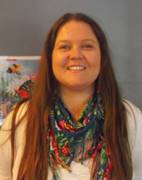Safeguarding Statement
|
Kingslea Primary School is committed to safeguarding and promoting the welfare of children and young people and expects all staff and volunteers to share this commitment. We are fully committed to ensuring that consistent effective safeguarding procedures are in place to support families, children and staff at the school. All concerns are passed through the members of staff who are trained as
“ Designated Safeguarding Officers ” in the school. Cause for Concern All staff are asked to report any causes for concern to the Designated Safeguarding Officers using a written pro-forma. Any concerns will be shared with parents/carers as early as possible, as more often than not there are extremely reasonable explanations for the concern. Concerns may range from children being visibly upset to persistent lateness, to children “ disclosing ” concerns. People working in schools are uniquely placed to notice signs and symptoms of abuse and to support children subject to abuse and living in abusive situations. |
Staff Safeguarding Guidance and Training informs all of the following:
• Procedures to safeguard children and young people. • Awareness-raising about abuse in order to overcome barriers to children and young people reporting their concerns. • Helping adults recognise the signs and indicators that might give rise to concern. • How to respond to concerns about abuse of children and young people. • How to respond to children and young people making an allegation of abuse. • Ways in which adults can raise concerns about unacceptable behaviour by other adults. • Specific issues such as school trip adult-pupil ratios, photography and images on the internet, physical contact, one-to-one coaching, journeys in cars, conduct on school trips, etc. Our Safeguarding policy is available on the website or from the school office; please ring and request one if you need a copy. |
Has someone done something online that has made you or a child or young person you know, feel worried or unsafe? Please click to find out more
Department for Education guidance on keeping children safe in education - (September 2022)
Please click here for more details
You might become involved because:
You see an injury that cannot be explained
A child may want to tell you about what is happening to him or her
Another person may express concern for a child’s wellbeing
You may notice significant changes in the way a child performs in school
What to do:
Listen non judgementally
Ask open questions to clarify but not to investigate
Do not promise confidentiality, explain you may need to talk to someone else
Reassure the child but avoid physical contact
Let the Designated Safeguarding Office or Headteacher know
Don’t investigate and take a statement. Listen to the child then record
Avoid judgements and opinions
Ask for advice about what to do next
Maintain contact with the child for reassurance
Be professional. Do not discuss this matter openly
A child may want to tell you about what is happening to him or her
Another person may express concern for a child’s wellbeing
You may notice significant changes in the way a child performs in school
What to do:
Listen non judgementally
Ask open questions to clarify but not to investigate
Do not promise confidentiality, explain you may need to talk to someone else
Reassure the child but avoid physical contact
Let the Designated Safeguarding Office or Headteacher know
Don’t investigate and take a statement. Listen to the child then record
Avoid judgements and opinions
Ask for advice about what to do next
Maintain contact with the child for reassurance
Be professional. Do not discuss this matter openly
You must refer on immediately
Useful numbers:
Child Line: 0800 1111
NSPCC Helpline: 0808 800 5000
Child Line: 0800 1111
NSPCC Helpline: 0808 800 5000
|
|
|
Photographic images - Emmie Leyland
|
Proudly powered by Weebly
|



